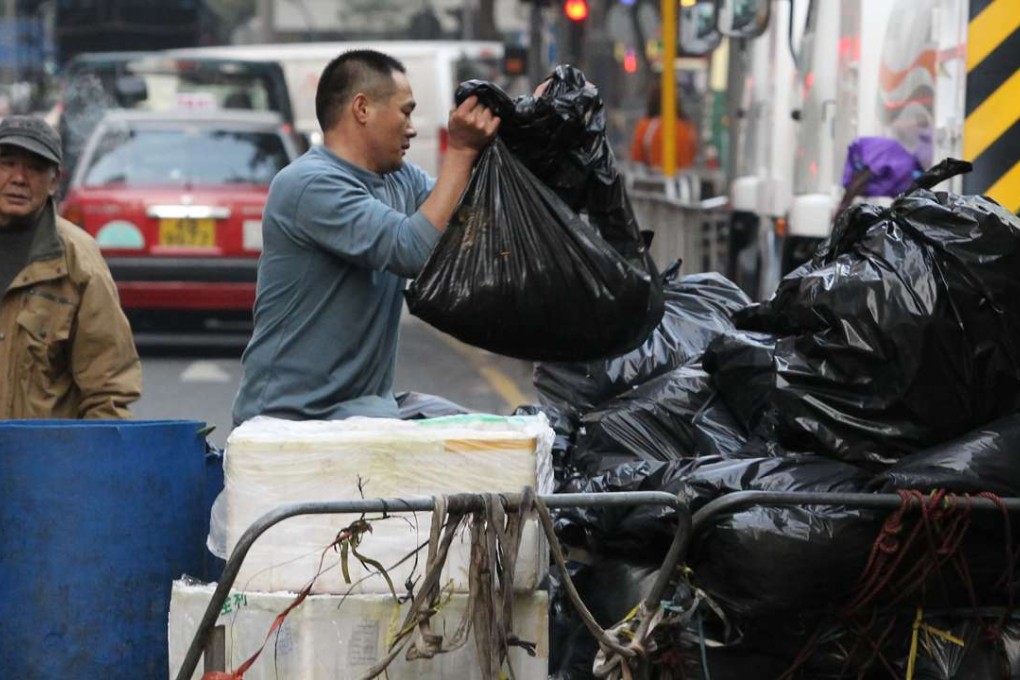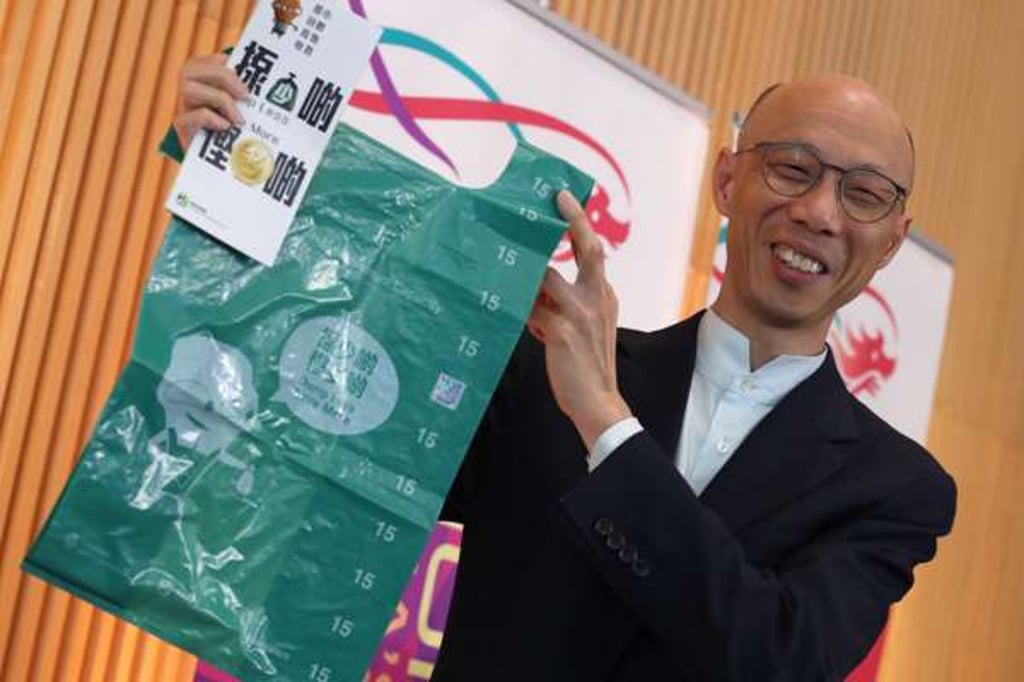Waste disposal charge will cost a typical Hong Kong family HK$51 a month
Environment minister reveals range of fees intended to meet target of a 40 per cent reduction in household waste by 2022

Hong Kong’s households will have to shell out around HK$33 to HK$51 a month to dispose of their rubbish when a long-awaited quantity-based charging scheme designed to change behaviour and reduce waste comes into force in two years.
Environment minister Wong Kam-sing said on Monday that charges for municipal solid waste – rubbish generated from homes, offices, factories and restaurants, a third of which comes from kitchens – would be imposed on all sectors in one go for the sake of fairness and in line with the “polluter pays” principle.

Residential buildings, village houses and street-level shops that use government refuse collection services will be required to buy one of nine types of rubbish bags of varying size, priced at an average 11 cents per litre. The charge will be 30 cents for the smallest, 3-litre bag, while the biggest 100-litre bag will cost HK$11.
A three-person household opting for the standard 15-litre bag – roughly the same size as a supermarket plastic bag – will pay about HK$1.70 a time, running a tab of about HK$51 per month. It will cost HK$1.10,or HK$33 per month, for 10-litre bags.